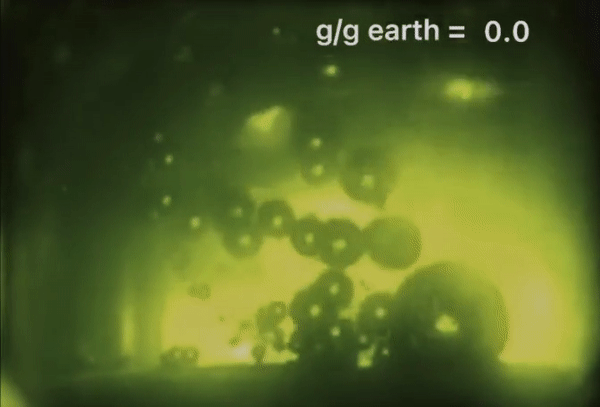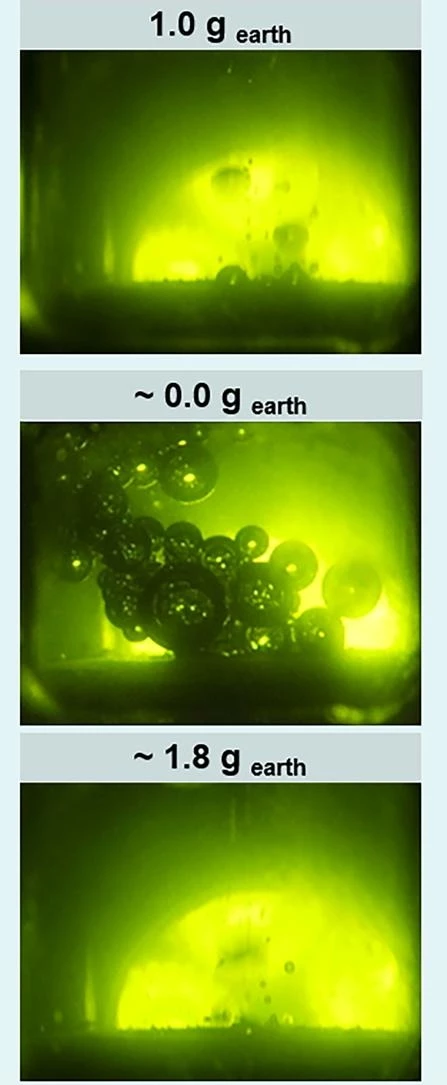It may seem crazy dangerous, but just in case future astronauts might have a yen for fries on their sojourn into space, ESA and the Aristotle University of Thessaloniki are investigating whether potatoes will fry properly in zero gravity or end up an undercooked mess.
If humanity is going to establish a permanent presence in space and carry out voyages that could last months or years, astronaut cuisine will have to move past freeze-dried shrimp cocktails and introduce menus that are more like back on Earth.
That means adopting terrestrial cooking techniques so they can operate under weightless conditions. Instead of starting with something easy, like coleslaw, it seems that ESA has decided to jump in at the deep end and gone with fried potatoes.
The tricky thing is that there's more to a fry up than a pan of hot oil and dumping the chips in. Frying is a collection of very complex processes of physics and chemistry and some of these might not work in zero gravity. One in particular is how bubbles form on the potatoes as they cook. Without gravity, the circulation of the oil around the potatoes can't happen, which could cause the bubbles to stick, forming an insulating layer of steam so the potatoes can't cook properly.

To investigate this, the research team built an experimental fryer that works like a carousel to handle the potatoes and a high-speed camera to record the cooking as well as the growth rate, size and distribution, and escape velocity of the bubbles from the potato. The temperature of the oil and the inside of the potatoes was also recorded.
The whole apparatus was automated and sealed and pressurized for safety. This was extremely important because it was tested by putting it aboard an ESA jet, which flew parabolic arcs to create weightlessness for a few seconds at a time.

According to the space agency, the bubbles formed and detached from the surface of the potatoes as they do on Earth. Though the process still needs some tweaking in regard to the parameters, it does provide hope for interplanetary fry ups in the near future, and could have impacts outside the kitchen.
“Apart from nutrition and comfort, studying the process of frying in space could also lead to advancements in various fields, from traditional boiling to producing hydrogen from solar energy in microgravity,” said John Lioumbas from the team.
The research was published in Food Research International.
Source: ESA








